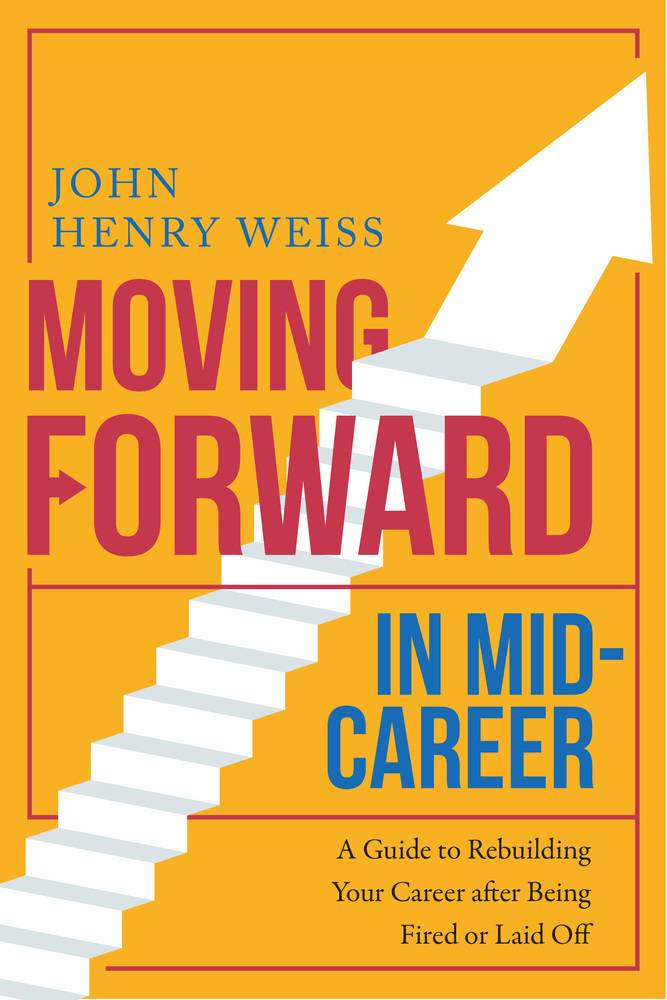Rebuilding Your Career After a Layoff: Why It Matters
Losing a job can be a painful and difficult experience. A layoff is a form of termination where the employer dismisses employees due to financial or business reasons, such as downsizing, restructuring, or budget cuts. It’s a harsh reality that can affect anyone, regardless of their skills, experience, or job performance.
However, as daunting as it may seem at first, a layoff can also be an opportunity to reinvent your career and pursue new goals. According to a survey by Jobvite, 61% of workers who experienced a layoff said it turned out to be a blessing in disguise, as it allowed them to find a better job or change their career path.
So, why is it important to rebuild your career after a layoff?
First and foremost, having a job is crucial for financial stability and personal fulfillment. A sudden loss of income can lead to stress, anxiety, and put your financial well-being at risk. By rebuilding your career, you can regain control of your professional life and increase your chances of finding a job that meets your needs and aspirations.
Moreover, rebuilding your career can also help you grow personally and professionally. It’s an opportunity to reflect on your skills, strengths, and interests, and expand your knowledge and experience in your field or new areas. By learning new skills, networking with professionals, and exploring career opportunities, you can become a more valuable and marketable candidate in the job market.
In summary, rebuilding your career after a layoff is not only necessary but also beneficial for your personal growth and professional success. By taking proactive steps to improve your skills, learn new things, and pursue new opportunities, you can turn a challenging situation into a rewarding journey towards a more fulfilling career.
Preparing to Rebuild: Assessing Your Situation and Developing a Plan
The first step in rebuilding your career after a layoff is to assess your situation and create a roadmap for your next steps. This involves understanding your strengths, weaknesses, interests, and goals, as well as identifying job opportunities, industries, and skills that match your profile.
To assess your situation, start by analyzing your previous job performance, accomplishments, and feedback from supervisors and colleagues. This will help you understand your strengths and weaknesses and identify areas for improvement or development. You can also use self-assessment tools, such as psychometric tests or online quizzes, to get insights into your personality, skills, and preferences.
Next, you should develop a plan that outlines your short-term and long-term goals, as well as the steps you need to take to achieve them. Your plan should be specific, measurable, realistic, and time-bound (SMART) and should take into account your current financial situation, personal commitments, and job market trends.
To create a plan, start by defining your career objectives. Do you want to find a similar job to your previous one, or do you want to explore new roles or industries? Are you interested in freelancing, entrepreneurship, or continuing education? Once you have a clear idea of your goals, you can start researching job openings, industries, and companies that match your preferences.
Additionally, you should also identify the gaps in your skills and knowledge and seek opportunities to fill them. This can involve taking online courses, attending workshops or seminars, reading books or articles, or learning from mentors or experts in your field. By upgrading your skills and staying up-to-date with industry trends, you can increase your chances of landing your dream job or starting your own business.
In summary, preparing to rebuild your career after a layoff requires a thorough assessment of your situation and a strategic plan that aligns with your goals and aspirations. By taking the time to reflect, research, and develop your skills and knowledge, you can be well-prepared to thrive in the competitive job market and achieve your professional success.
Developing New Skills: Bridging the Gap and Building Your Expertise
One of the most effective ways to rebuild your career after a layoff is to develop new skills that are in demand by employers and industries. By expanding your knowledge and expertise, you can stand out in a crowded job market and demonstrate your value to potential employers or clients.
To start developing new skills, you need to identify the gaps in your skills and knowledge. This can involve assessing your previous job responsibilities, reviewing job postings and requirements, and getting feedback from industry professionals or mentors. You can also take online quizzes or assessments to evaluate your strengths and weaknesses and discover new areas of interest.
Once you have identified your skill gaps, you can start exploring online courses and training that are relevant to your goals and preferences. Online learning platforms, such as Coursera, Udemy, or LinkedIn Learning, offer a wide range of courses and certifications in various fields, from programming and digital marketing to leadership and project management. Additionally, you can also look for professional associations, trade organizations, or industry events that provide training or continuing education opportunities.
Another important aspect of developing new skills is networking with professionals who can offer advice, feedback, or referrals. Building strong professional relationships can help you learn from others’ experiences and get insights into the job market and industry trends. You can attend online events, join industry groups on social media, or reach out to former colleagues or mentors to expand your network and get connected with potential employers or clients.
In summary, developing new skills is an essential step in rebuilding your career after a layoff. By identifying your skill gaps, taking online courses and training, and networking with professionals, you can broaden your expertise and stay competitive in the job market. Remember, learning is a lifelong process, and investing in yourself is the best investment you can make for your career.
Finding a Job: Strategies to Land Your Next Gig
After you have assessed your situation, developed a plan, and upgraded your skills, the next step in rebuilding your career after a layoff is to find a job that matches your goals and interests. This can be a daunting task, but by following some best practices and strategies, you can increase your chances of success.
The first step in finding a job is to research job openings that fit your skills, experience, and preferences. You can search for job postings on job boards, company websites, or professional networks, such as LinkedIn. Additionally, you can also reach out to recruiters, headhunters, or staffing agencies who specialize in your field or industry. The key is to be proactive and persistent, as the job search process can take time and effort.
Once you have identified job openings that match your profile, you need to craft an effective resume and cover letter that highlight your skills and experience. Your resume should be tailored to each job application and showcase your achievements, skills, and career goals. Your cover letter should be brief but compelling and explain why you are a good fit for the position and the company. You can also use keywords and metrics to demonstrate your impact and results.
The next step is to prepare for interviews and make a positive impression on potential employers. You can research the company culture, mission, and values, and prepare answers to common interview questions. You should also dress appropriately, practice good communication skills, and demonstrate your enthusiasm and readiness for the job.
Lastly, don’t forget to follow up after the interview and express your appreciation for the opportunity to meet with the employer. You can send a thank-you email or note, reiterating your interest and qualifications for the job.
In summary, finding a job requires a proactive and systematic approach that involves researching job openings, crafting effective resumes and cover letters, and preparing for interviews. By staying focused, organized, and persistent, you can increase your chances of landing your next gig and starting a new chapter in your career.
Staying Positive: Maintaining Resilience and Motivation
Rebuilding your career after a layoff can be a challenging and stressful process that may test your resilience and motivation. However, staying positive and focused on your goals is essential for overcoming obstacles and achieving success. Here are some strategies to help you stay positive during your career transition.
First and foremost, it’s important to connect with others who share similar experiences and can offer emotional support and practical advice. You can join support groups, attend webinars or workshops, or participate in online communities where you can interact with other job seekers, mentors, or industry professionals. By sharing your challenges and learning from others, you can gain new perspectives and ideas that can help you stay motivated and resilient.
Another important aspect of staying positive is to focus on what you can control and take proactive steps towards your goals. You may face setbacks, rejection, or uncertainty during your job search, but you can choose how you respond to these challenges and what actions you take to overcome them. For instance, you can set weekly or monthly goals, track your progress, and celebrate small wins. You can also develop a routine that includes exercise, meditation, or other activities that promote physical and mental well-being.
Additionally, you can also visualize your success and imagine yourself in your dream job or pursuing your career goals. Visualization can help you build confidence, reduce anxiety, and stay motivated during the ups and downs of the job search process.
In summary, staying positive is a critical component of rebuilding your career after a layoff. By connecting with others, focusing on what you can control, and visualizing your success, you can maintain your resilience and motivation and increase your chances of achieving your professional goals. Remember, your attitude and mindset can make a big difference in your career success, so stay positive and don’t give up!
Conclusion: Taking Action towards a Fulfilling Career
Rebuilding your career after a layoff may seem like a daunting and uncertain journey, but with the right strategies and mindset, you can turn it into a rewarding and fulfilling experience. Here are the steps to follow to rebuild your career after a layoff.
- Assess your situation and develop a plan that aligns with your goals and preferences.
- Upgrade your skills and knowledge by taking online courses and training and networking with professionals.
- Research job openings, craft effective resumes and cover letters, and prepare for interviews.
- Stay positive and focused on your goals by connecting with others, focusing on what you can control, and visualizing your success.
By following these steps, you can rebuild your career after a layoff and achieve your professional aspirations. Remember, the job search process can be challenging and may require patience, persistence, and resilience, but with the right mindset and actions, you can overcome any obstacle and reach your destination.
If you have been laid off or are facing a career transition, don’t lose hope. Take action today towards your goals and start building the career you deserve.




